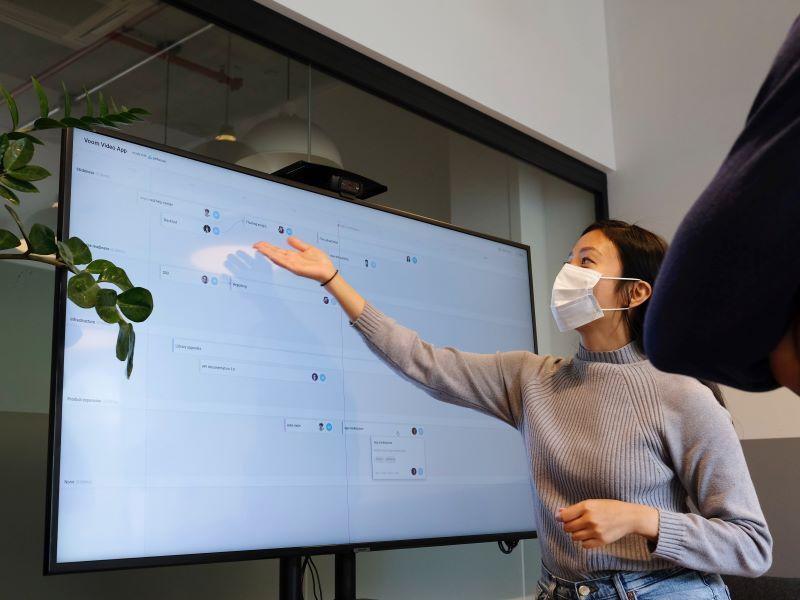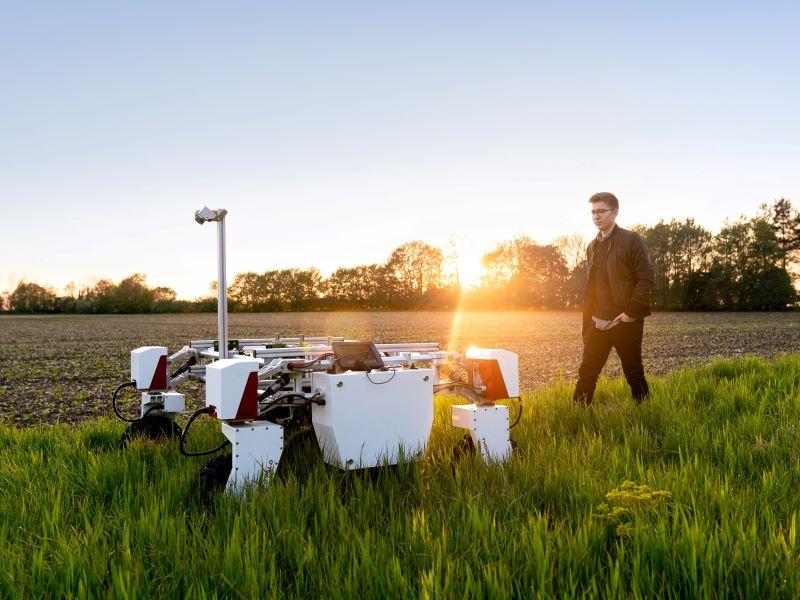
We started a commercial software company at our university – and you should too
Staffed by students, epiGenesys provides profits for the university and allows students to work in a lively, supportive and successful business environment

It was more than 30 years ago when a local businessman approached me, a computer science professor, to ask if any of my students could write some software for his business. I divided my second-year class into small teams and set this task as their main assignment. They attacked the problem enthusiastically and produced several excellent solutions to choose from, one being awarded a prize by the client.
This exercise became a core part of our curriculum and, ever since, many small businesses, charities and public sector organisations have benefited from getting bespoke software solutions for little or no cost. The students are always very enthusiastic about making something useful, the clients are always delighted and I learn much about the practicalities of software development.
Not long after that initial experiment, from 1997 some British universities introduced four-year engineering degrees following the SARTOR report, which reviewed engineering degrees. This was motivated by the need to make UK engineering degrees more comparable to the longer degrees found in the rest of Europe. But instead of treating our fourth year as an extension of the third year, we introduced a radical new approach. I set up a shell software company, and all the students were then asked to run it as part (a third) of their degree’s final year, so they oversaw marketing, production and planning. This has been a tremendous success and very popular. It has made these students extremely employable, enterprising and mature.
- Don’t forget that the ‘academic’ and the ‘vocational’ are deeply intertwined
- Using community-based research projects to motivate learning among engineering students
- How to develop partnerships that offer students real-world learning experiences
Over the years, of course, we have faced several challenges. The students working on software projects in the student company, Genesys, would leave at the end of their degree when they graduated. This meant that projects would have to stop until next year’s cohort arrived. We also got requests from clients for new or extended systems that we couldn’t start until October.
We would see students leaving and becoming excellent assets to many companies, but some wanted to stay around, so I persuaded the university to create a fully commercial software company, this time named epiGenesys, in 2008 using European Union funding.
Creating a fully professional company to look after clients and their systems throughout the year has solved all our previous issues: epiGenesys has become a successful and profitable business, which not only provides sophisticated software solutions for a variety of clients but also participates fully in our department’s teaching, preparing and managing our students in their “real-life” projects.
Some years ago, I was invited to discuss what we were doing with the secretary of state for education. He was very enthusiastic and couldn’t understand why we were the only university doing something like this. We came to a clear conclusion as to why this was. The main obstacle was many academics’ aversion to risk. The idea of allowing students to run a company was thought to be crazy – it could all go wrong in so many ways, and how could this satisfy the teaching quality and course approval bureaucracy?
We have shown that such an approach meets all these concerns and provides a unique and highly successful educational experience for students. It has also provided an excellent laboratory for research into software engineering, team working and well-being because the projects are real.
There are, however, many things that need to be addressed by any universities considering such an endeavour. First, it should be made an important part of the curriculum and not just an “add-on”. This means that preparation for working in groups is fundamental. This starts with the students doing safe internal projects posed by staff in Year 1, learning how teams work, experiencing the stages of software development and the importance of planning and carefully documenting their work.
In Year 2, students work with real clients, who may be from other departments, charities, small businesses, medical departments and so on. They must meet the clients, understand their needs and build good quality software for them. It is a competitive activity, with several teams competing to build the best system for their client. Regular, weekly monitoring of the groups is essential, so it is clear who is doing what and so any problems can be dealt with. This has been a very popular activity, and the benefits for the students in understanding real-world problems and handling them is highly significant. The clients also learn much about their organisation and the software commissioning process. Quality is important and is strongly emphasised. Assessment combines observations by staff, self-assessments and client assessments.
Finally, we come to the student company, Genesys, in Year 4 and the MSc programme. The students all sign non-disclosure agreements to protect confidential details of their client’s business. Liability is covered by the university’s insurance. Contracts specify intellectual property ownership, support and price. Very rarely, a client can be problematic, perhaps trying to exploit the students. We have found that graduates of other universities who enrol on our advanced MSc courses need some preliminary training before they can join the Genesys projects.
An exercise such as this can be done in other subjects – types of consultancy, for example – but students need structures and processes defined.
Developing a vertical structure incorporating a commercial company such as epiGenesys ensures sustainability. It also reduces the dependence on a few academics who may feel that spending a lot of time on these often-challenging projects will damage their research opportunities.
Students benefit from being taught, supervised and mentored by real, practising software professionals. Over the years, the company has been able to recruit some of the brightest students into a lively, supportive and successful business environment. Despite the pandemic, the company has continued to flourish, and its profits are reinvested in support of the university and its students.
Mike Holcombe is emeritus professor of computer science at the University of Sheffield where he has been head of department and dean of the faculty of engineering; he is also chair of epiGenesys.
If you found this interesting and want advice and insight from academics and university staff delivered direct to your inbox each week, sign up for the THE Campus newsletter.


